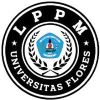PKM Pemanfaatan Limbah Hasil Pertanian dan Kotoran Ternak Sebagai Pupuk Organik Plus untuk Meningkatkan Produksi Tanaman Hortikultura di Desa Wakadia Kabupaten Muna
DOI:
https://doi.org/10.37478/abdika.v3i2.2223Abstract
This PKMI activity will apply POP technology (organic plus fertilizer) which is environmentally friendly in the community living in Wakadia Village, Muna Regency, both non-productive and productive communities in the agricultural sector. Wakadia village is an agricultural area with land conditions that continue to grow vegetables throughout the year using chemical fertilizers so that this will have an impact on decreasing the condition of soil nutrients and have an impact on the health of the people of Wakadia village. In this New Normal era, healthy and nutritious nutrition is urgently needed to increase the resistance or immunity of the local community, so that to fulfill this nutrition organic vegetables that are free of chemicals are needed. Therefore, POP technology is needed to improve the quality of soil nutrients, increase production and obtain organic vegetable crops. In the village of Wakadia there are also many agricultural wastes and livestock manure that are abundant but have not been optimally processed so that they do not provide added value to the village community, so PKMI activities must be carried out to improve environmental conditions that have been polluted due to the use of chemical fertilizers, and also can increase the income of the local community by utilizing existing waste to be used as organic fertilizer. Where organic fertilizer has a higher price than livestock manure that has not been processed. Thus, the solution offered in this PKMI activity is the application of technology in changing the use of chemical fertilizers with the use of POP technology so that farming land is even more productive. The forms of technology applied to the community in this service are (1) technology for making organic fertilizer plus (2) technology for packaging organic fertilizer plus (3) technology for marketing horticultural crops through online media (Facebook and Watshap).
Downloads
Keywords:
Horticultural crops, Organic fertilizer plusReferences
Kartini, N. L. (2008). Pertanian Organik, Penyelamat Ibu Pertiwi. Denpasar: Bali Organic Assosistion, 61.
Indriani, Y. H. (1999). Membuat Kompos Secara Singkat. Penebar Swadaya. Jakarta.
Karyawati, A. S., Waluyo, B., & Basuki, N. (2010). Evaluasi penampilan plasma nutfah jagung dan galur Kedelai hasil mutasi untuk tumpangsari Menggunakan ugmented design. Fakultas Pertanian Universitas Brawijaya.
Roidah, I. S. (2014). Pemanfaatan lahan dengan menggunakan sistem hidroponik. Jurnal Bonorowo, 1(2), 43-49.
Rosliani, R., & Sumarni, N. BUDIDAYA TANAMAN SAYURAN DENGAN SISTEM HIDROPONIK. Monograf No.27. Balai Penelitian Tanaman Sayuran
Sutanto, R. (2002). Penerapan Pertanian Organik: pemasyarakatan dan pengembangannya. Yogyakarta: Kanisius.
Sartono J.S, S. &. (2018). PEMANFAATAN LIMBAH SAYURAN SEBAGAI BAHAN BAKU PEMBUATAN PUPUK CAIR GUNA MENDUKUNG PERTANIAN ORGANIK DI KABUPATEN WONOGIRI. Adi Widya: Jurnal Pengabdian Masyarakat, 2(2), 113–121.
Tamrin, Hasrul, (2019). Dinas Pertanian: Peluang Bisnis Hidroponik Kian Menjanjikan di Kota Kendari. Media Cetak Sultra Kini.com.
Nur, T., Noor, A. R., & Elma, M. (2016). Pembuatan pupuk organik cair dari sampah organik rumah tangga dengan bioaktivator EM4 (Effective microorganisms). Konversi, 5(2), 5-12.
Downloads
Published
How to Cite
Issue
Section
License
Copyright (c) 2023 Sitti Leomo, Waode Nuraida, Rian Arini, Andi Awaluddin, Eka Febrianti, Muhidin Muhidin, Tresjia C Rakian, Muhammad Safarrudin

This work is licensed under a Creative Commons Attribution-ShareAlike 4.0 International License.










